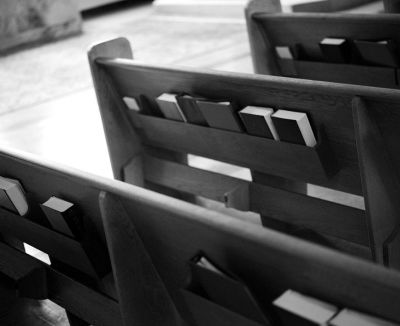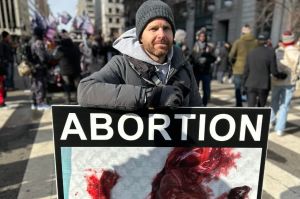When It Comes to Abuse, the Church Needs a Paradigm Shift

New details emerging about sexual abuse and harassment by Bill Hybels and the subsequent handling of the reports of abuse by Willow Creek Community Church show that we need a paradigm shift in the broader church and we need it now.
The #metoo and #churchtoo movements have given us countless examples as well as lessons to be learned on how to handle reports of abuse. Especially in the church, where trust, honesty and integrity are essential to the most sacred of spaces. We continually see however how its mission and function are replaced by legalistic protectionism instead. When will churches learn that the only way through abuse charges and complaints is early transparency and accountability regardless of who will face consequences? The harm and trauma have already occurred. The crime has already been committed. The more the institution attempts to cover it up, the more traumatic damage, culpability and financial liability will occur.
Churches who have not yet made this essential paradigm shift continue to place the reputation of the church or favored individuals as the mistaken priority. It is one factor to consider but it does not rise over the harm done to innocent victims. By not accepting responsibility, denying, justifying, reversing blame or making weak apologies, churches exploit victims. This double-down effect equates to Institutional Abuse.
What is the cost of Institutional Abuse? It is reasonable to expect that a sacred establishment of higher learning and integrity will be a safe place to report the truth. When the response by the institution does not align with an expectation the disparity between expectation and delivery is commensurate with a new and exacerbated traumatic experience for the victim on an exponential, group-based level. It's the double down effect, the Double Abuse® effect multiplied by however many individuals are involved internally. The weight of responsibility for an Institution is also far greater than any individual's because of the Institution's wide-reaching potential impact, its pervasive influence within its own organization, and significantly, upon other organizations and individuals in the immediate and greater community.
When an Institution has been informed of maltreatment and has verified it, in part or in full, it is incumbent upon them to hold leadership to account, rectify the maltreatment, provide reparations to the victim commensurate to the harm done, and ensure that it never happens again. This is how we care for victims as well as send a message to the broader church that integrity is firmly in place.
The recent articles show that there had been disagreements within the Willow Creek Community Church leadership on how to handle the reports of misconduct by Hybels. Why when there are protocols well in place in the corporate setting as well as in higher learning institutions with Title lX is there conflict and confusion? Of all places, Willow Creek has missed a huge opportunity to stand as an example of how to do this well, to lead the way to a much-needed paradigm shift towards doing what's right over legal protectionism and biased favoritism. Just yesterday, the entire elder board announced it would step down. This is a good step to help change a toxic micro-culture, but it is now necessary after months of inaction and deflection. For everyone in the congregation to gain clarity about how and where compassion and transparency serves best I hope they continue internal investigations, outside audits and comprehensive sensitivity and abuse training.
The only reason to avoid responsibility is to participate in the abuse itself. I label the four pillars of abuse as: faulty thinking or beliefs; image management; entitlement; and preferential treatment to favored individuals. Avoidance is abusive. Facing the truth equals integrity, but facing the truth also hurts. Hurt and consequences can bring about meaningful change. Ignoring and avoiding the truth harms. Henry Cloud says that there is a difference between hurt and harm. Harm damages victims.
Not only did leadership resist the victim's story, the church body's focus was blindly insisting on biased and preferential treatment to Hybels. It should be an easy call for churches to prioritize the mistreated and oppressed, to care for a victim's well being. Repeatedly, however, personally knowing the guilty turns rational thinking on its head. And, it seems to be even more difficult when that person is an "upstanding member of society."
Psychological dynamics of abuse show up in many Institutional structures and cultures, causing a regular occurrence Double Abuse®. Double Abuse® becomes systemically embedded in the atmosphere, activities, leadership, and reactions toward others who are routinely put into downgraded positions.
When preferential treatment to culpable leaders becomes the priority the harm cannot be overemphasized. Victims subjected to institutional abuse equals Double Abuse®, resulting in PTSD or exacerbated Complex PTSD. These life-altering symptoms affect victims on a cellular level and can take a minimum of five years to heal. We saw this in the Larry Nassir cases and so many others.
In the Bill Hybels case, the victim felt shame and did not want to impact the work of the church and of the perpetrator, so she did not come forward about the instances of abuse until much later when other women were accusing Hybels of misconduct and not being believed. Women in the church are often accommodators, not wanting to buck a system that strongly favors the Ole Boys network. They instinctively know that their confusion, stress and trauma will get worse as they risk the loss of support by family, friends and professional community.
It's important to resist the pressure to maintain the social status quo in order to confront biases that will set victims free. The true test of our acceptance of a survivor's story comes when we challenge the norms within our own professional, spiritual or family circles. This can confirm to victims that their personhood is more important than the perpetrator's image, proximity, or social standing.



























